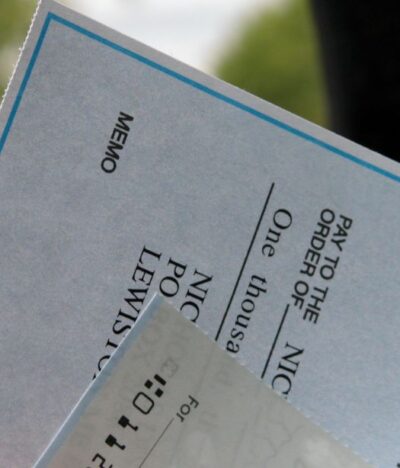When navigating Florida’s dynamic real estate market, both homebuyers and sellers encounter various legal terms and concepts. One of the most critical, yet often misunderstood, is the procuring clause. This legal concept plays a significant role in determining which real estate agent is entitled to the commission in a completed transaction.
At Eko Law, our experienced attorneys understand the complexities of Florida real estate laws and help clients avoid or resolve disputes over the procuring clause. This blog will provide a detailed explanation of what the procuring clause is, its importance in real estate transactions, and what buyers and sellers need to know to protect their interests.
What Is the Procuring Clause in Real Estate?
The procuring clause refers to the actions taken by a real estate agent or broker that directly lead to the successful completion of a property sale. Essentially, it determines which agent was the primary reason a buyer and seller came together to close the transaction.
For example, if one agent shows a buyer a property and the buyer later purchases it through a different agent, the original agent may argue that they were the procuring clause, as they initiated the sale process.
Understanding the procuring clause is crucial for avoiding commission disputes, which are common in Florida’s competitive real estate market.
Why Is the Procuring Clause Important?
In Florida, real estate agents earn their commissions based on results. The procuring clause helps determine who is entitled to this compensation when multiple agents or brokers are involved.
For Buyers
- Ensures clarity about your obligations if you interact with more than one agent.
- Helps you avoid legal disputes when switching agents or negotiating independently.
For Sellers
- Ensures you fulfill your legal obligations to compensate the rightful agent.
- Protects you from potential double commission claims.
Common Scenarios Involving Procuring Clause Disputes
1. Switching Agents
A buyer may initially work with one agent but later switch to another for various reasons. If the first agent introduced the buyer to the property that was eventually purchased, they might claim the commission based on the procuring clause.
2. Open House Visits
Buyers who attend an open house hosted by one agent but later purchase the property through a different agent may create disputes. The hosting agent may argue they were the first to generate interest in the property.
3. Multiple Agreements
Sellers sometimes sign agreements with multiple agents, creating ambiguity over which agent is the procuring clause if the property is sold.
4. Revived Transactions
If a deal falls through initially but is later revived by another agent, both agents may claim credit for the sale.
How to Protect Yourself as a Buyer or Seller
Whether you’re buying or selling a home in Florida, understanding your rights and obligations regarding the procuring clause can help prevent disputes.
1. Review All Contracts Carefully
Real estate contracts often include a procurement clause or related provisions that outline the agent’s role and commission structure. Review these agreements thoroughly and seek clarification if needed.
2. Communicate Clearly
- Buyers: If you decide to switch agents, notify both the original and new agent in writing.
- Sellers: Ensure your listing agreement specifies the terms under which an agent is entitled to a commission.
3. Keep Records
Maintain detailed records of interactions with agents, including emails, property showings, and agreements. This documentation can be invaluable in resolving disputes.
4. Work with an Attorney
An experienced Florida real estate attorney can help you understand the legal implications of the procuring clause and ensure your contracts protect your interests. At Eko Law, we assist clients in navigating these complexities to avoid costly misunderstandings.
A Word About The New Real Estate Commission Rules
The National Association of Realtors (NAR) settlement of 2024 prohibits offers of compensation on the multiple listing service (“MLS”) and requires MLS participating agents working with buyers to enter into a written commission agreement. In other words, sellers will no longer pay the typical 6% commission which was advertised as being split with the buyer’s agent.
While this does not drastically affect procuring cause liability for broker commissions, it may involve buyers more directly in real estate broker disputes. This is because a real estate agent working with a buyer is owed a commission from the buyer. Thus, a buyer excluding their agent from the purchase of a home they were shown is a proper defendant in a commission lawsuit brought against them by their real estate broker.
Commercial real estate agents are very aware of this settlement and may change some of their practices. However, commercial real estate brokers list properties mostly other than on MLS so there is little effect on the typical commercial transaction. Non-residential real estate commissions are negotiated as part of the purchase and sale agreement between buyers and sellers of commercial real estate. As such, most commercial brokers will continue to provide their services as they always have precisely because commercial transactions are done differently than residential deals.
How Eko Law Can Help
At Eko Law, we provide comprehensive legal services for buyers, sellers, and agents in Florida’s real estate market. Our expertise in procuring clause disputes and related matters ensures that your transactions proceed smoothly and your rights are protected.
Our Services Include:
- Contract Review and Drafting: We help clients draft and review contracts to include clear and enforceable terms related to the procurement clause.
- Dispute Resolution: If a commission dispute arises, we work to resolve the issue efficiently through negotiation or litigation.
- Legal Guidance: Our team ensures that buyers and sellers understand their obligations and can navigate the process confidently.
Frequently Asked Questions About the Procuring Clause
What Happens If Multiple Agents Claim the Commission?
Disputes between agents are resolved by determining who was the procuring clause—the agent whose efforts directly led to the transaction. This may involve reviewing contracts, communication records, and the sequence of events.
Can Buyers Be Held Liable for Commission Disputes?
While buyers are not typically responsible for paying commissions, disputes over the procuring clause can delay the closing process. Clear communication and thorough documentation can help prevent complications.
How Can Sellers Avoid Procuring Clause Disputes?
Sellers can minimize disputes by working with a single agent under an exclusive agreement and ensuring that all contractual terms are clear and specific.
Schedule Your Free Legal Consultation with Eko Law Today
The procuring clause is a vital aspect of Florida real estate transactions, determining which agent is entitled to the commission when multiple parties are involved. For buyers and sellers, understanding this concept is essential to avoiding disputes and ensuring a smooth process.
At Eko Law, our experienced attorneys are here to provide the guidance you need to navigate Florida’s real estate market confidently. Whether you’re reviewing contracts, resolving disputes, or seeking legal advice, we’re committed to protecting your interests.
If you need assistance with a procuring clause dispute or any other real estate matter, contact Eko Law at 727-447-1075. Let us help you achieve peace of mind in your next real estate transaction.
Eko Law—Your trusted partner for Florida real estate legal solutions.







